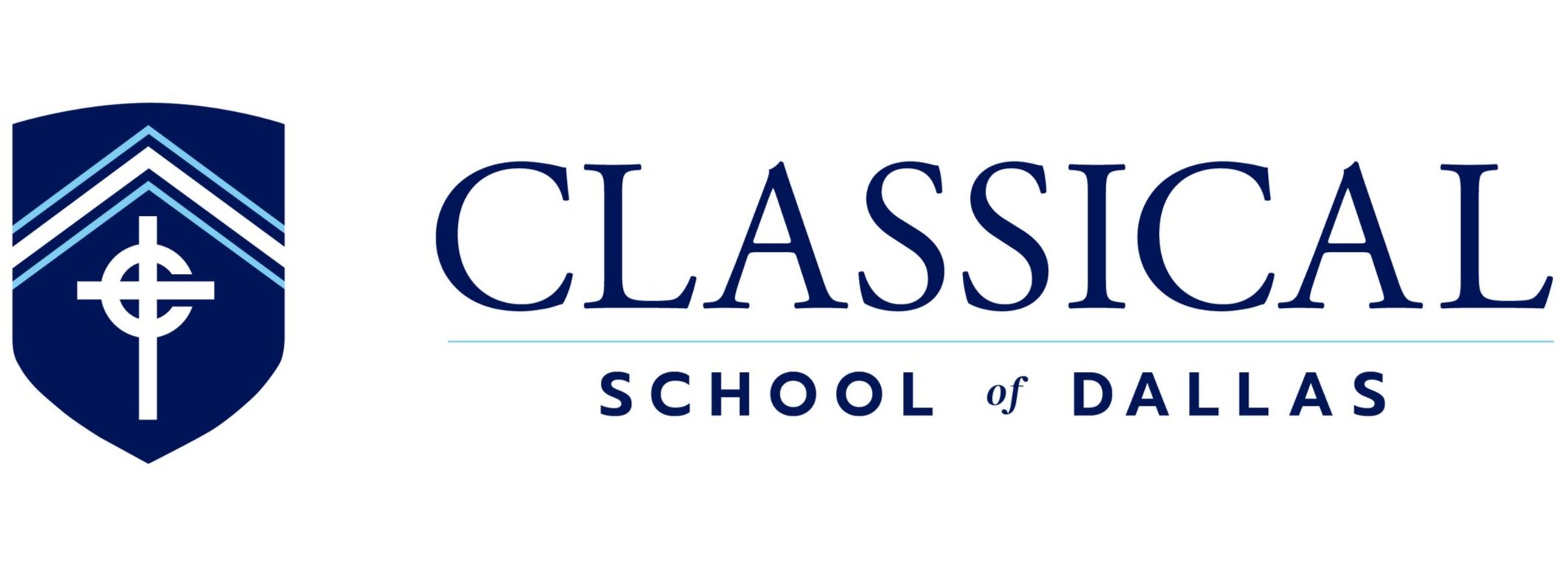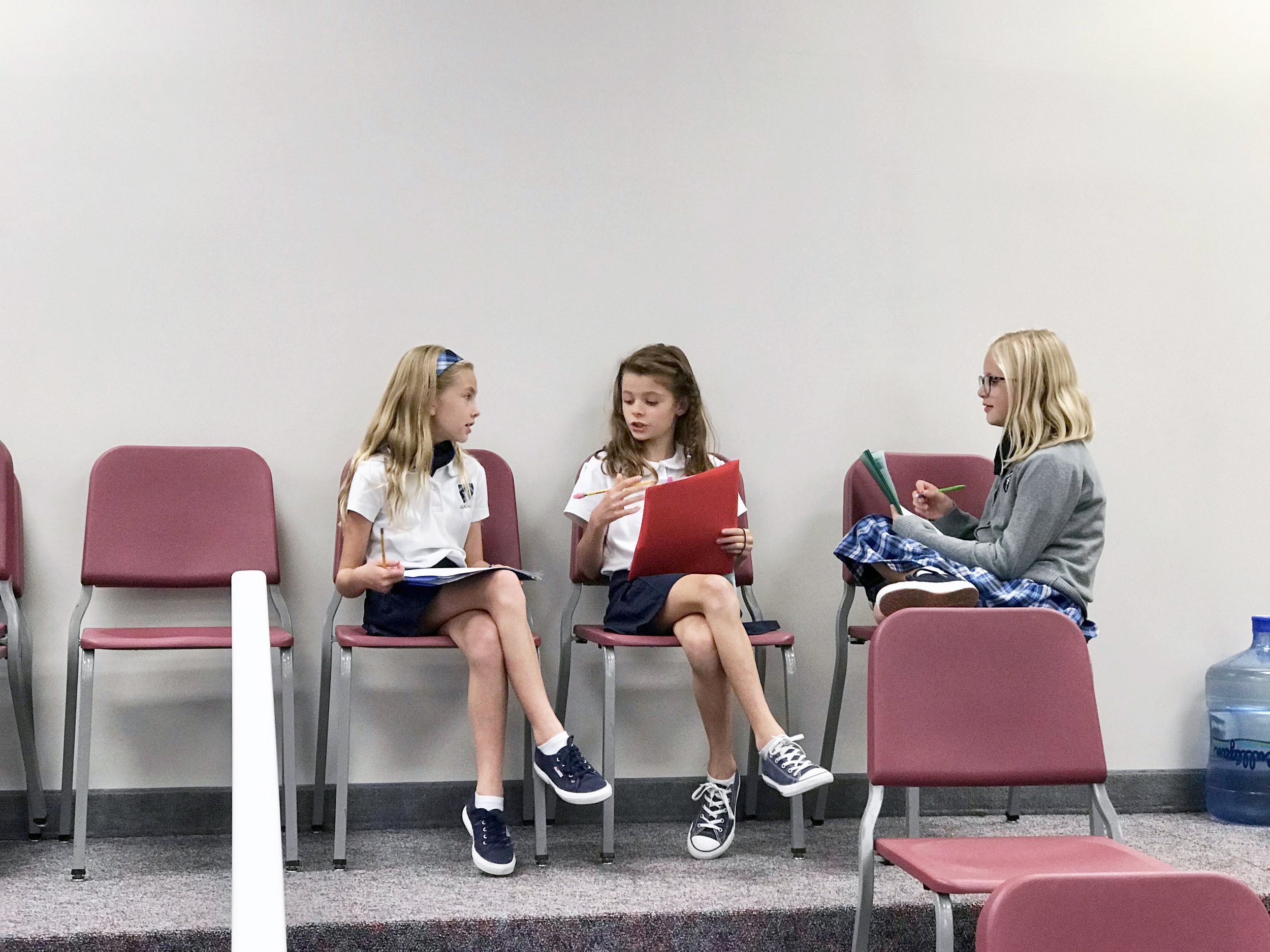A Classical Education
We use the term "Classical education" in reference to the educational content and methods we and others who are a part of classical Christian education use. The classical curriculum is largely in line with what has historically been known as a liberal arts and science education. The classical approach is a language-rich method of study that helps train students to recognize and love what is true, good, and beautiful. It is well-rounded in the study of science, math, chronological history, literature and poetry, English grammar, Latin, and the arts. This form of education has its roots in antiquity and for centuries has helped students become lifelong learners. Classical education also refers to teaching students how to progress through three stages of learning that are often called the Grammar, Logic, and Rhetoric stages of learning. Therefore, the historic Trivium of grammar, logic, and rhetoric are used in classical education as both subject matter and a method of instruction that aligns with a child's stage of development.
“The sole and true end of education is simply this: to teach men how to learn for themselves; and whatever instruction fails to do this is effort spent in vain.”
The Trivium
Grammar
Kindergarten through 4th Grade
The Grammar stage capitalizes on a child’s natural ability to memorize. Songs, lines from stories, and phrases from conversation are easily absorbed and repeated. The grammar stage uses these innate memory skills to introduce students to great poetry and master mathematical facts and Scripture using tools like group recitation, songs, and chants.
There is also an emphasis on introducing students to many well-crafted stories, exposing them to the full narrative of history, exploring different world cultures, and encouraging observation skills in science. Though the students will not always recognize the sophistication of the facts they are absorbing, they are laying a foundation of knowledge upon which they will build a structure of comprehensive learning over the next two stages of the trivium. As Dorothy Sayers illustrates in "The Lost Tools of Learning", the grammar stage teaches students “how to handle the colors and the brush” before setting them free to paint.
Grammar Stage students will:
Recite math facts, history timeline, scientific information, and English grammar through chants, sound-offs, and song
Memorize poems, Latin vocabulary, hymns, phonograms, and Scripture
Cultivate observation skills and curiosity through hands-on projects and exploration of God’s creation in art and science
Begin to develop a taste for quality literature, music, and art
Master the core curriculum of reading, writing, and arithmetic
Train attention to detail via handwriting, spelling rules, math story problems, and careful listening
Be exposed to world history, languages, other cultures, a broad range of science topics, and many well-crafted stories
Digest language-rich content early on rather than relying on easier, image-based content in order to help train toward a love of reading
Establish a solid framework of knowledge
Logic
5th through 8th grade
The Logic stage recognizes the student’s developing inclination to argue at this age and nurtures the analytical component of the learning process. Students use information they gathered and memorized in their grammar years and start to look at it from different angles by comparing and contrasting ideas, and by digging more deeply into all realms of study. Across the spectrum of the curriculum, emphasis is placed on the questions why, how, and what is the result? Furthermore, the logic stage facilitates discussion across traditional subject lines, focuses on the formal study of logic, and directs the student to test ideas for truth.
Logic Stage students will:
Learn the progression of research, hypotheses, experiments, and reporting results through the scientific method
Perceive the natural order and patterns in music, math, English grammar, writing, languages, and art
Study formal logic and debate
Compare and contrast information and ideas across traditional subject lines
Test/analyze information and ideas to see what is true by weighing the value of the evidence and thinking through the validity of the argument
Interact with original texts in order to understand the hows and whys of history, literature, and scientific discovery
Experiment with different art, mathematical, and writing techniques
Develop the capacity for abstract thought
Move from passively collecting information to actively interacting with knowledge
Rhetoric
9th through 12th grade
When the Rhetoric stage begins, the students have a solid foundation of knowledge and the ability to logically process their knowledge. They are now prepared to craft their own ideas and express them gracefully. The rhetoric stage students learn how to inform, persuade, delight, and move others through written work and oration. They explore areas that they enjoy at a deeper level and develop a stronger understanding of how they bear God’s image. The rhetoric student may reflect Christ in the ways they create order through working an elegant math derivation, help promote truth and goodness through a winsome essay, or reflect beauty in the design of their works of art.
Rhetoric Stage students will:
Express ideas gracefully through winsome oration and eloquent writing
Use knowledge framework and the skill of logical argument to write and speak about all subjects in the curriculum
Create what is true, good, and beautiful
Specialize in areas of the student’s natural aptitude or interests during the student's last two years
Continue to study original text and great books, joining the “Great Conversation”
Study formal Rhetoric
Develop “fair-mindedness,” the ability to consider multiples sides of an argument
Latin
Studying Latin is an excellent way for students to learn how to handle the tools of grammar, logic, and rhetoric. In the grammar stage, students memorize vocabulary, verb and noun endings, and beautiful historic songs and prayers. Then they begin to fit vocabulary and grammar endings together to create words and sentences. This puzzle of how all the pieces of the Latin language fit together requires mental organization, the ability to see patterns, and a logical approach to study. Once the student has mastered the grammar and logic of Latin, the student can begin to read the original texts of Ovid and Cicero and join the Great Conversation at a deeper level.
The study of Latin is helpful as a tool for building a robust English vocabulary, as a basis for studying the modern romantic languages, and as a way of deepening the student’s understanding of the mechanics of English grammar. However, one of Latin’s greatest strengths is that it is, at its core, a logically organized language. By studying Latin, the student is trained to be detailed-oriented, disciplined in study, and ultimately more organized as a scholar.
For further reading, please see "The Top 10 Reasons for Studying Latin," by Memoria Press
The Progression
The three stages of the trivium - Grammar, Logic and Rhetoric - are layered in a calm but uphill exercise in perseverance. The self-discipline produced by that exercise, combined with the tools of learning, enables students to become lifelong learners. Sayers summarized it well, “The sole true end of education is simply this: to teach men how to learn for themselves; and whatever instruction fails to do this is effort spent in vain.” When we teach and model for students how to progress through the learning stages of gathering information, analyzing that information, and then eloquently expressing their own ideas; they are prepared not only to recognize but also to create something authentically true, beautiful, and good.
Dorothy Sayers quotes taken from “The Lost Tools of Learning,” her essay on the value of Classical education. (Downloadable PDF version)
Click here for more resources on classical education.





